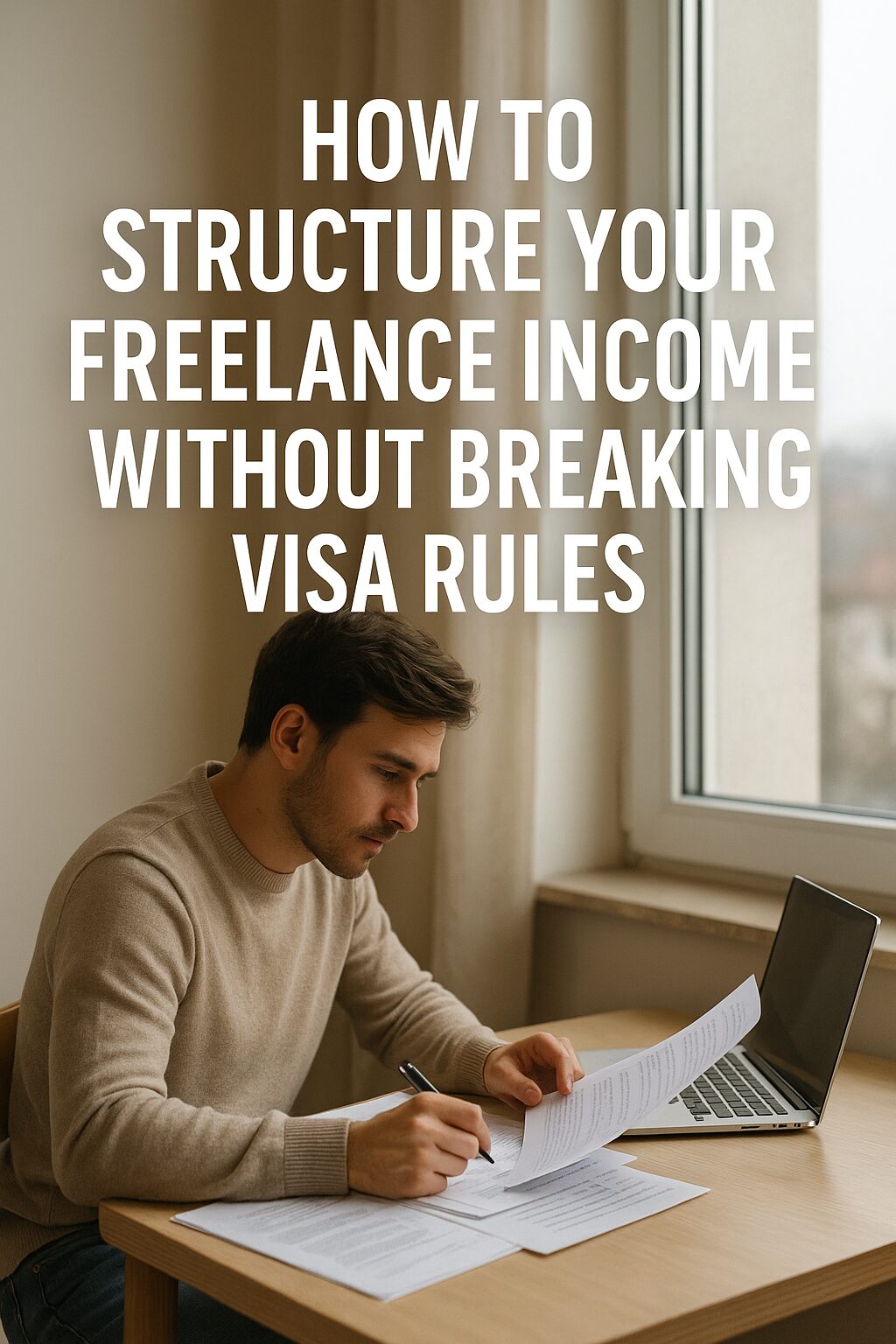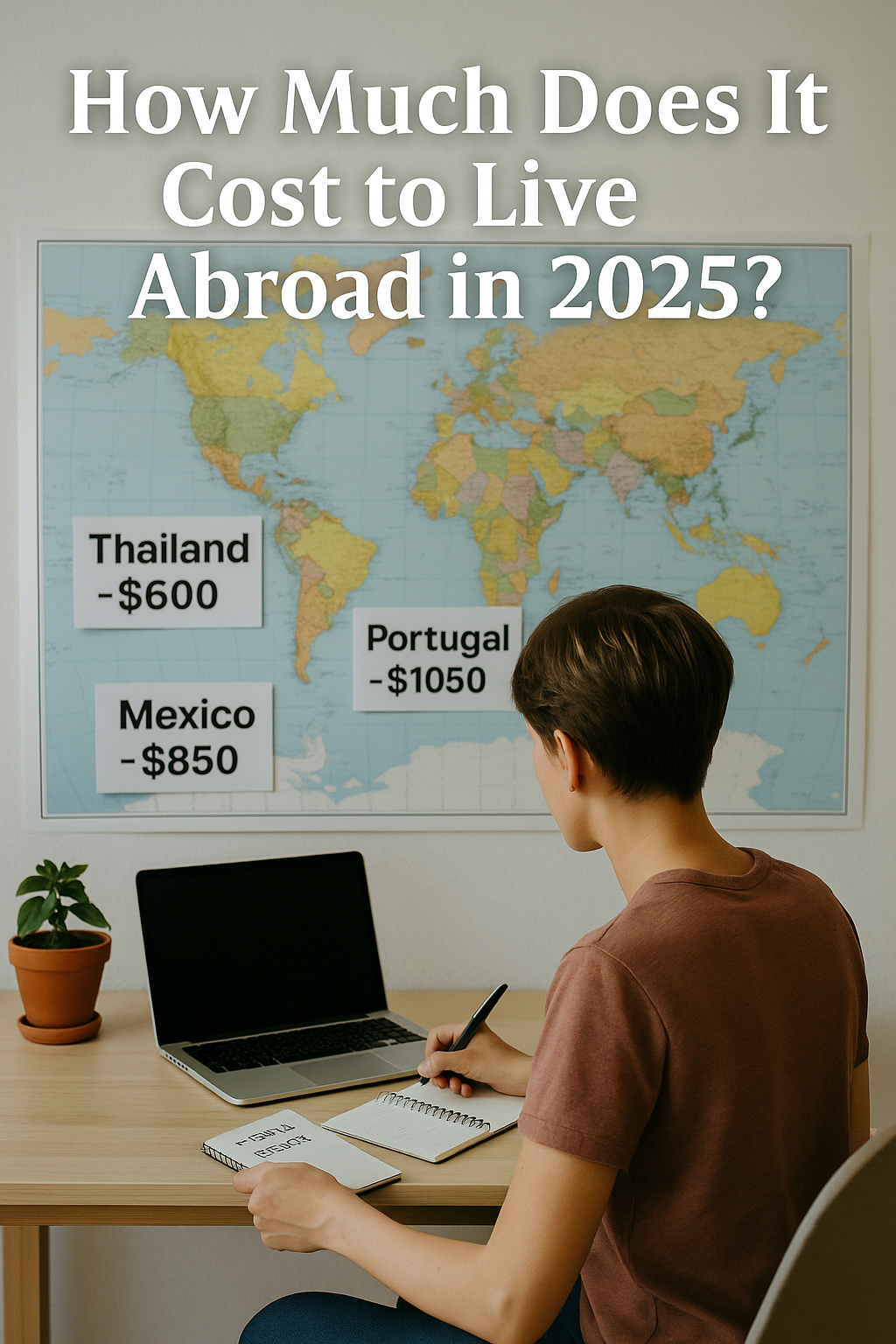A step-by-step guide to earning safely while protecting your immigration status
You’re smart, talented, and ready to earn online.
But there’s one big fear holding you back:
👉 “Will I break my visa terms if I freelance?”
If you’re living in a foreign country—especially on a student visa, working visa, or dependent visa—freelancing might seem risky. One wrong move could lead to serious consequences, like visa cancellation or even deportation.
But here’s the good news:
Freelancing doesn’t have to violate your visa.
If you structure your income correctly, understand your limits, and choose the right platforms, you can earn money safely.
Why This Matters
Many immigrants, students, and expats are stuck in “permission paralysis.”
They want to earn online, but don’t know what’s allowed.
So they do nothing — and miss out on hundreds or thousands of dollars.
This guide will show you how to build a freelance structure that protects you.
No legal jargon, just simple steps anyone can follow.
Step 1: Understand Your Visa Restrictions
Every visa has different rules. But most fall into one of three categories:
| Visa Type | Can You Freelance? | Conditions |
|---|---|---|
| Work Visa | ✅ Sometimes | Must be related to your sponsor/employer |
| Student Visa | ❌ Usually Not | Some countries allow part-time jobs (check limit) |
| Dependent Visa | ✅ / ❌ | Varies by country and permission status |
| Tourist Visa | ❌ No | Any paid work is illegal |
📌 Tip: Always check your visa letter or the official immigration website for your country.
Step 2: Use Platforms That Don’t Require Employer Ties
Avoid platforms that link directly to employment contracts.
Instead, use ones that treat you as an independent contractor.
✅ Safe Choices:
- Fiverr
- Upwork
- Freelancer.com
- Contra
- SolidGigs
❌ Risky Choices (for visa holders):
- W-2 employment platforms (e.g., U.S.-based payroll apps)
- Full-time remote jobs from traditional companies
Step 3: Separate Your Identity (Legally)
If your visa doesn’t allow freelance income directly, consider building under a separate legal structure:
A. Use Your Home Country’s Bank + Tax ID
Many platforms let you receive payments to non-local accounts.
Set up your freelance identity as a foreign contractor.
What you’ll need:
- Bank account in your home country
- Payoneer or Wise for transfers
- Tax ID (if needed for withdrawals)
B. Consider a Local Business Setup (If Allowed)
Some countries let visa holders register as sole proprietors or freelancers.
This can make it legal to invoice and get paid.
Always confirm this with local laws before proceeding.
Step 4: Avoid “Employee” Behavior
Even if you’re freelancing, acting like an employee can trigger problems.
Watch out for these red flags:
- Working fixed hours like a job
- Being paid regularly without invoices
- Having only one long-term client
- Listing your role publicly on LinkedIn as “Remote Employee”
📌 Act like a contractor:
Use contracts, send invoices, choose your working hours.
Step 5: Keep Impeccable Records
If immigration asks how you earn money, you must be able to show:
- Who paid you
- For what service
- How much you earned
- Where the money went
Use simple tools like:
| Purpose | Tool |
|---|---|
| Invoicing | Wave, Bonsai, PayPal |
| Contracts | Notion, Google Docs |
| Payment Tracking | Excel, Wise, Payoneer |
Step 6: Keep Your Earnings Below Risk Thresholds (If Needed)
Some countries allow limited “passive” or “non-taxable” income for visa holders.
If you stay under a specific amount, you may avoid tax or visa issues.
📌 Example:
In some countries, if you earn under $5,000/year as a “digital hobbyist,” you may not need a license.
This is not universal — always check the law.
Step 7: Use Freelance Work to Transition to a Safer Visa
This is the long-term move.
If your current visa is strict, freelancing can help you transition to a better visa:
| Current Visa | Target Visa | Strategy |
|---|---|---|
| Student (F-1) | Work Visa (H-1B, E-2) | Use skills portfolio to apply for sponsor jobs |
| Tourist | Freelance/Startup Visa | Build proof of earnings over time |
| Dependent | Self-Employed Visa | Register as independent worker in-country |
| Any | O-1 / EB-2 NIW | Use freelance work as evidence of expertise |
Freelance work, when tracked and structured properly, builds a legal path to stay longer.
Bonus: Safe Services You Can Use Anywhere
| Function | Tools |
|---|---|
| Receive payment | Wise, Payoneer, Stripe (non-U.S. only) |
| Build a website | Carrd, Notion |
| Portfolio | Contra, Behance |
| Time tracking | Clockify, Toggl |
These services help you work globally, stay compliant locally.
Final Checklist Before You Start Freelancing
Review your visa type and income limits
Choose a platform that respects contractor status
Use foreign accounts if needed
Keep all records of services and payments
Avoid employee-like behavior
Look into long-term visa upgrades


